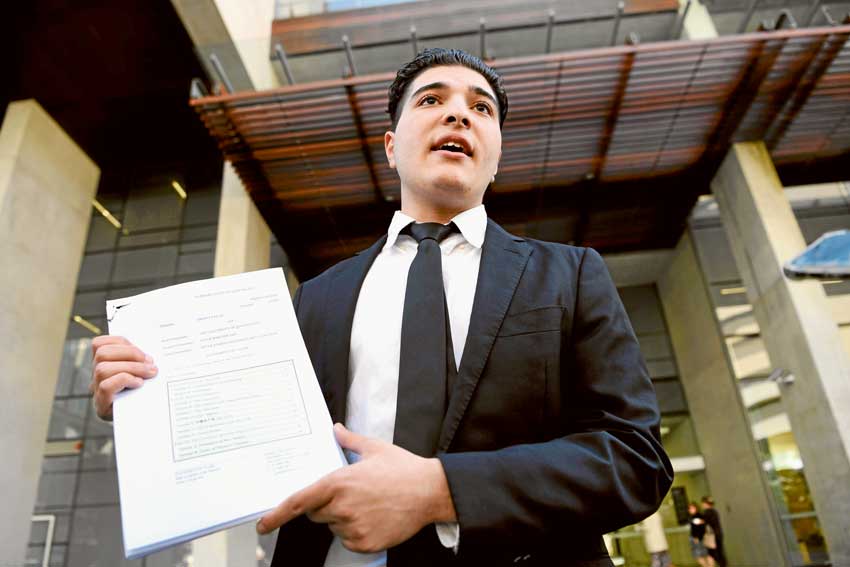
University of Queensland student activist and media sensation Drew Pavlou, who has been suspended by his institution until next year for what he claims to be retaliatory action against protesting against Chinese Communist Party – who UQ are accused of having strong business ties – and their violations of human rights.
Drew opens up to The Catholic Weekly’s David Ryan in an exclusive interview about what inspires his passion for human rights advocacy – inspirations which find their origins in Catholic social teaching.
You were schooled at Villanova College, an Augustinian Catholic Boys College in Brisbane. Did that experience influence you in any meaningful way?
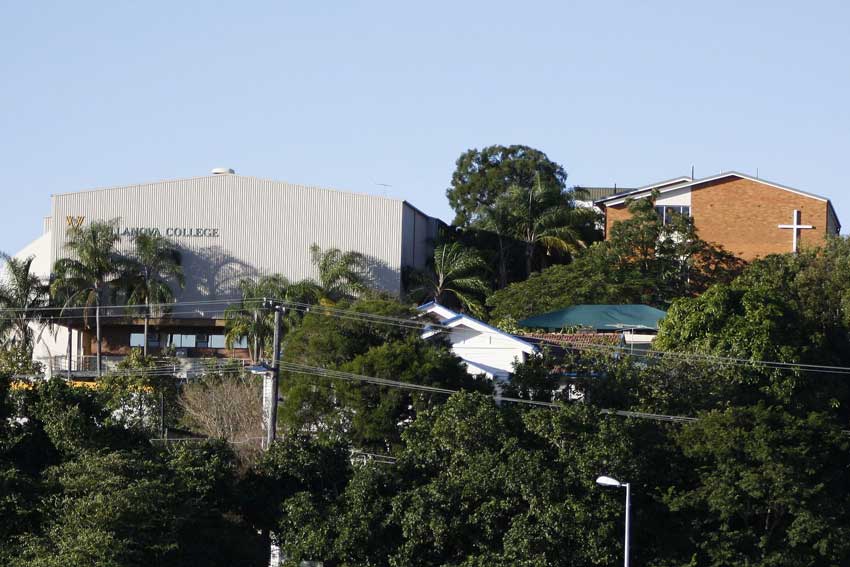
My Catholic schooling at Villanova focused heavily on human rights issues. Villanova has a really strong social justice tradition – we were always encouraged to raise funds for Caritas and school expeditions to the Philippines to aid communities there. This strong social justice tradition influenced me greatly. I think throughout my life – it’s not something I have been able to talk to the media much about because obviously in Australia there is an overwhelming emphasis on secular issues – but I truly think my policies have been influenced by the Christian worldview. I was raised in the Orthodox Christian Tradition – baptised Greek Orthodox – and attended Catholic Schools all my life.
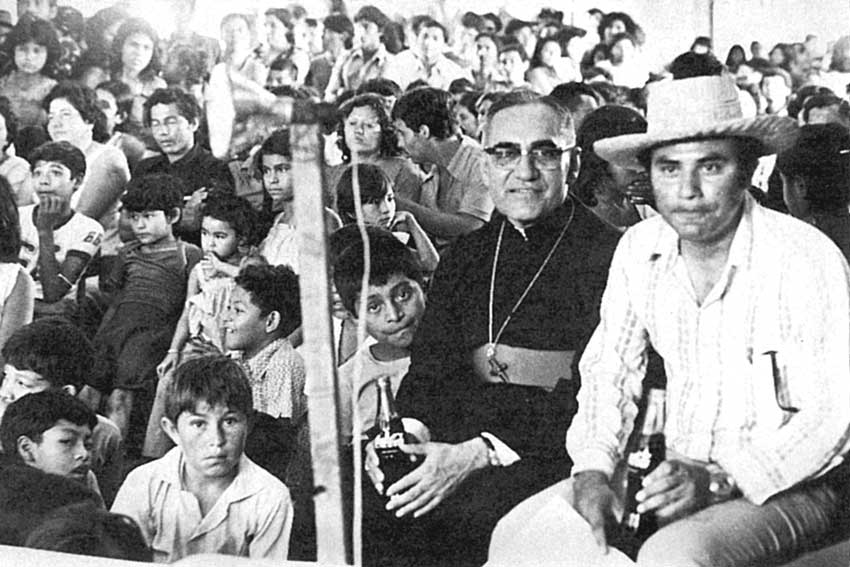
The Catholic focus on social justice has always been there. Studying religion in senior year, we focused on theology in Latin America, especially with regard to Oscar Romero.
Honestly, I see Oscar Romero as a great political hero of mine. He was a warrior for justice and I do look to his example and others in the Church. Catholic Social teaching has influenced my politics. Certainly, there are issues where I diverge from the Church but I think the fundamental emphasis on human dignity – that’s something that’s always stayed with me and shaped my entire political outlook.
2 So the Christian tradition is central to the notion of human dignity and social justice in modern society. Can you explain this in more detail?
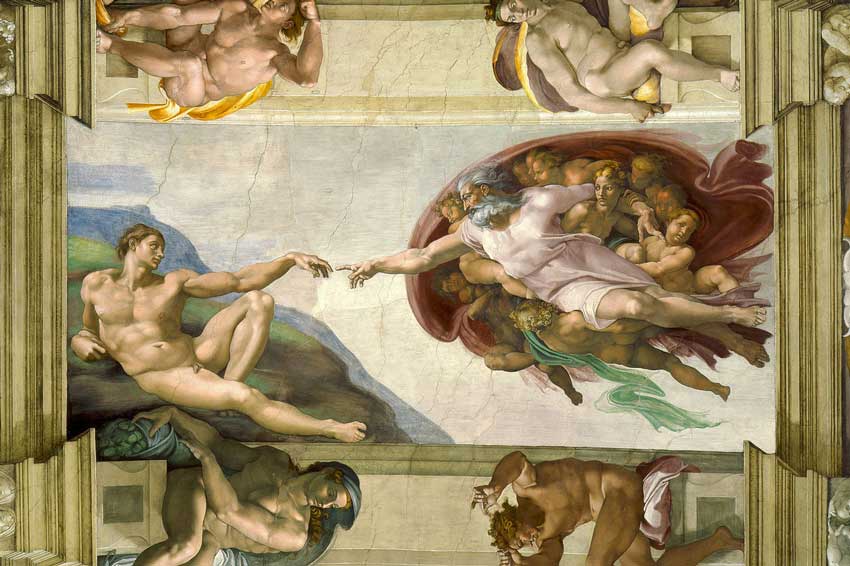
I think one thing people really miss – especially militant secular-atheists, often on the left – is how much great social justice work there is in the Church and that the message of Christianity is to focus on the fragile and vulnerable. These are great progressive goals and it’s definitely influenced my social justice principles. Humanism comes from Christianity. That’s what many on the left forget: our humanist values derive from the Christian tradition. There have been times I have lapsed into agnosticism but in the last couple of months I have been getting much more in touch with my Orthodox Christian background. I’ve sort-of been outside Christianity for a while, but I definitely feel that’s changed in recent months.
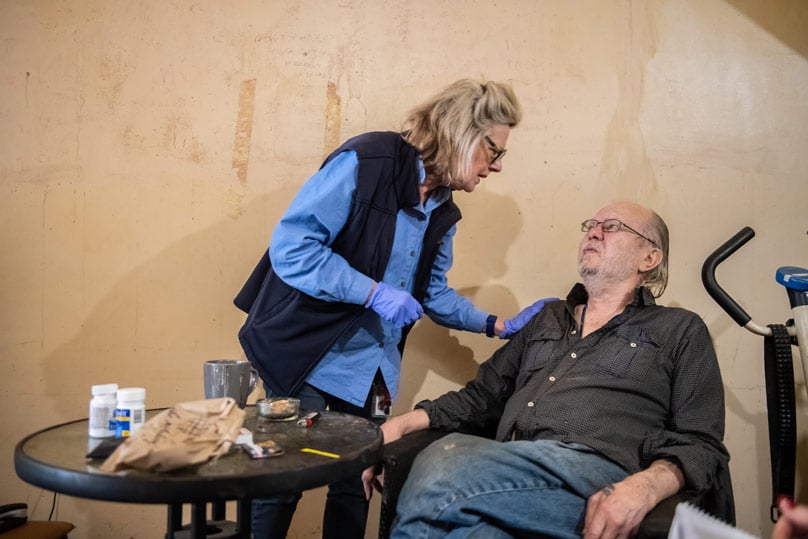
For me the way it came is the notion of universal human rights which I believe in strongly. The question is “how do you justify that belief?” and I think you cannot just justify that belief from a piece of paper but rather what confers the notion of the dignity of the human person. I was reflecting on this in a philosophical sense and my Catholic friends would say ‘Where do human rights come from if not from God?” and I thought to myself ‘We come to human rights through a rational position.’ But they would respond along the lines of “So why can’t we also come to a rational position on the social Darwinist Nietzschean notion that the strong dominate the weak?”
our humanist values derive from the Christian tradition
At the time, I didn’t have a response. But if we discard the Christian tradition then what stops us from becoming a society where the strong dominate the weak? That’s my great fear. And this is partly what we have at the moment. As we lose Christian traditions as a society we have moved towards a neoliberal dog-eat dog hyper-materialism.
The strong dominate the weak and the weak suffer – what a nightmare. If you lose the Christian humanist tradition what’s to stop us from going down that path?
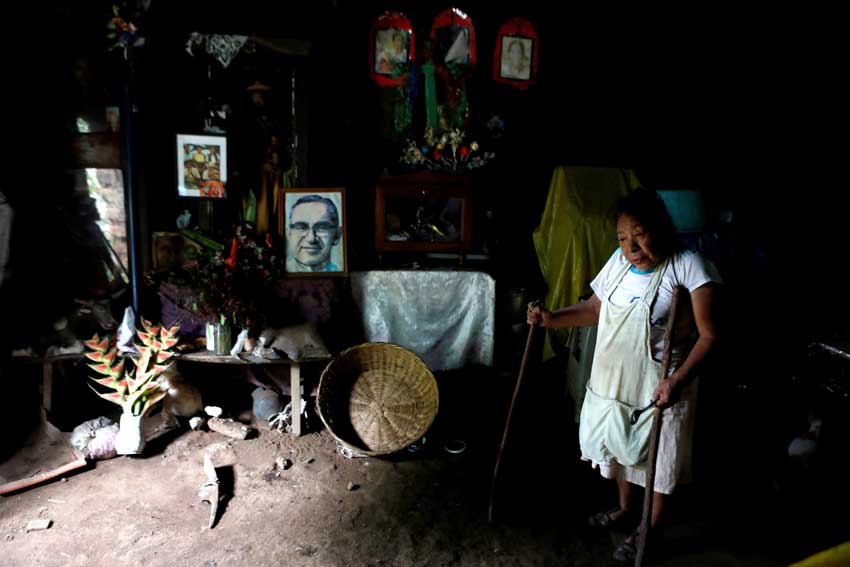
I think, honestly, if God took on human form and he died for the afflicted of the world – that’s the beautiful idea of Christianity. There is no more humane religion than the notion that someone as almighty as an Eternal God would die on the Cross for the beggars and sinners. Christianity is a religion that teaches us to show concern at a very fundamental level for the vulnerable because Christ died for the vulnerable. That’s what made me recover an understanding of Christianity. So I do understand the traditionalist Christian position because I, too, am opposed to the excess hedonism that comes with modern consumerism. I truly believe we find ourselves through family, community and social life.
Our fundamental concern should be the social nature of life which is best seen through family and community.
3 For many student activists, Christianity is often associated with negative connotations (The Handmaid’s Tale, for example). How do you explain this
and reconcile that view with your position as a student activist?
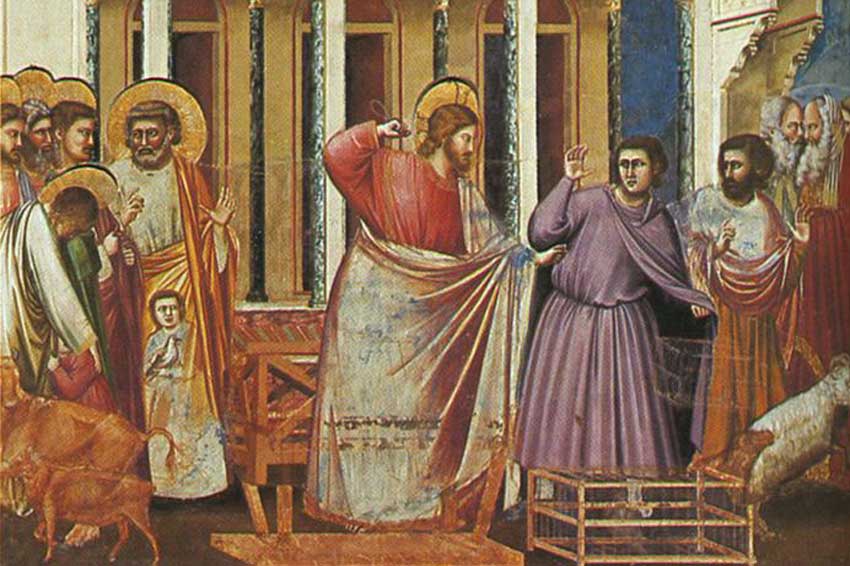
There is always this caricature. But a Christian society doesn’t have to be a Handmaid’s Tale situation so often caricatured. I honestly think the sort of fear you could have a ‘Christian Handmaid’s Tale’ dystopia in the West comes from Christianity – especially in America and in a lot of places – being already distorted to serve a dominant neo-liberal order, the Prosperity Gospel and things of that nature. In places like Latin America, where, there are often dictatorial regimes using Christianity to oppress. A regime like Pinochet’s in Chile comes to mind as an example: how could Pinochet be Christian when he was murdering unionists, leftists and ordinary civilians?
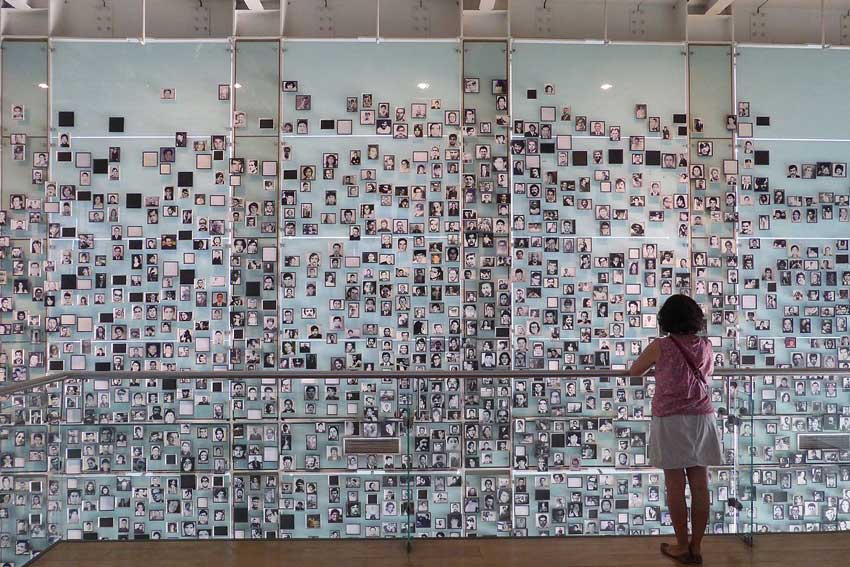
That’s why people often have the really fearful and hostile idea that a Christian society would be a nightmarish ‘handmaidens tale,’ but I don’t think that’s [justified]. I genuinely believe it’s a distortion of Christianity. God took on human form and died like a beggar in the life of Christ. So I try to say this to other people – often on the left who make the accusation that ‘a Christian society means a Handmaid’s Tale.’
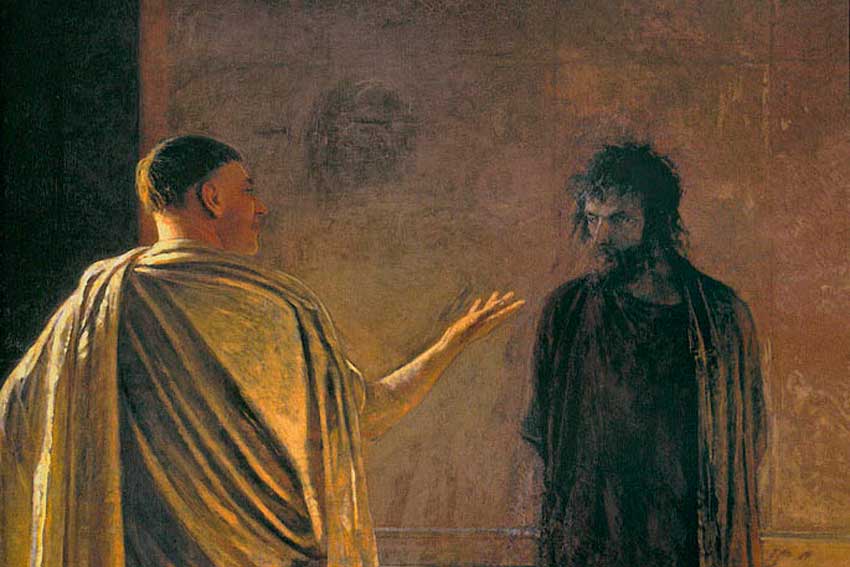
No. I want a Christian society in the sense of a society where the poor, fragile and vulnerable are at the forefront of our concerns at all times. The idea that a Christian society lends itself to a totalitarian dystopia comes from distorted versions of Christianity. These so called ‘Christian movements’ are often there to just serve the interests of the powerful, which is not at all what Christ had in mind. Christ turning out the money lenders in the temple – that was the revolutionary nature of Christ. He wasn’t in league with the powerful and their interests. No – he put the human first and that’s what Christian tradition is for me.
4 You advocate for a movement called Radical Democracy. It seems to advocate for small-scale subsidiarity and local representation. What’s it all about?
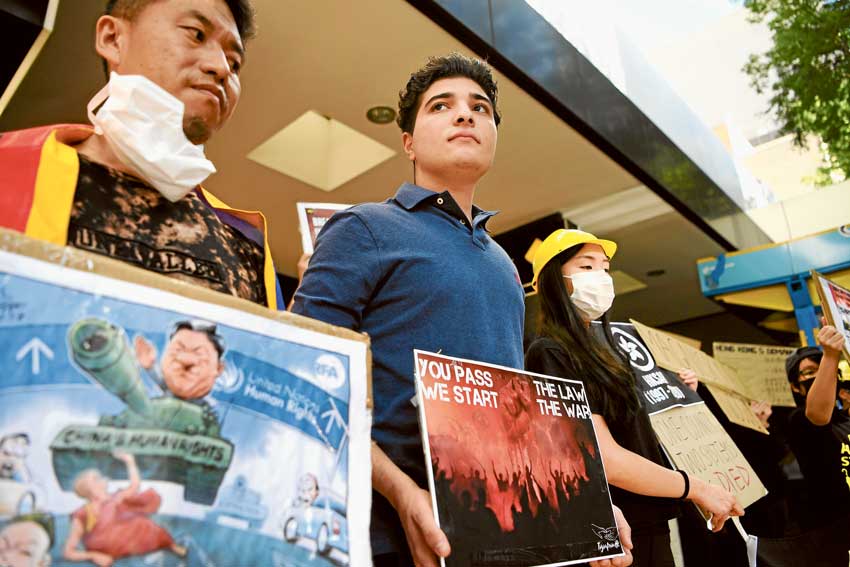
I guess the idea of radical democracy is that you are invested in the extension of democratic freedoms in all domains. Cornel West is a guy who is a great thinker of radical democracy and an inspiration of mine. One thing a lot of radical democrats like Cornel West say is that, ‘yeah we’ve got democracy in government and politics – but we don’t often have democracy in the economic realm.’ Many people unfortunately go to work where bosses act as dictators. Work is for shareholders and workers suffer in unfair working environments. This affects families and children. So we still don’t really have economic democracy and that’s where leftist democratic economics come into play. You want to expand democracy so the workers have democratic control of their workplaces and their own economic activities.
5 Are you aware of the Church’s principles of economic justice such as the ideas expressed in the papal encyclical Rerum Novarum which talks about subsidiarity and workers’ representation?
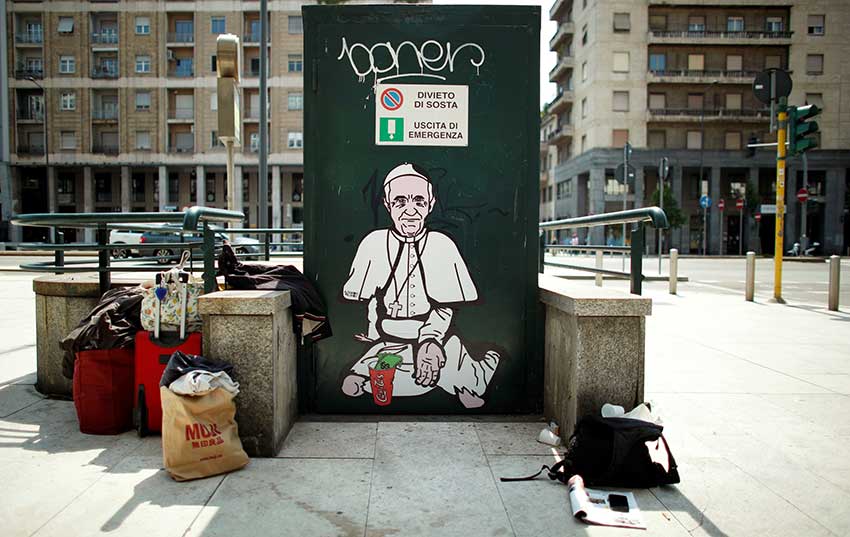
I’m very sympathetic to the distributionist economic model. Yes, I will say I am of the left, but I really reject popular Marxist strands of leftism because they often lend themselves to authoritarianism and materialism. So I end up at a sort-of distributionist perspective.
I genuinely think that possibly may be the best way. The Marxist strands on the left are often hyper-materialist and so in that way also lend to human alienation. Sure, capitalist materialism lends itself to human alienation as is evident, but the materialism in the Marxist-Leninist system in China at the moment – or under the old Soviet Union- fall into an authoritarian leftist model that also leads to human alienation.
This is why I am a leftist critic of the Chinese Communist Party.
6 Your advocacy highlighting human rights abuses (of the Uyghurs, those occurring in Tibet and Hong Kong) perpetrated by the Chinese Communist Party touches on larger geopolitical tensions. Some of this has fuelled anti-Chinese sentiment at home. Is this fair for Chinese people? Is there a distinction between the CCP and the Chinese people?
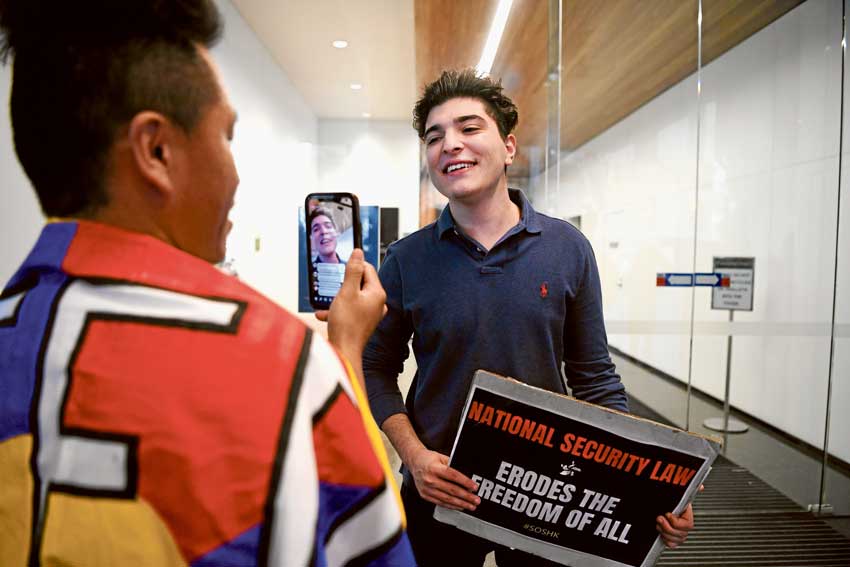
I always try and emphasise in my activism that I am opposed to the CCP and not the Chinese people. I have a great respect for the Chinese people. They are my brothers and sisters. I come to my activism from the Christian belief that all human beings are equal in dignity and have the same value and worth. So I really empathise with those Chinese students caught in that difficult position, because unfortunately it can often veer into anti-Chinese racism in popular sentiment. I really deplore anti-Chinese racism.
Yes, it’s a problem in Australia and we have to combat it. So I feel for those Chinese students who are the victims of that. It’s horrible. We are fighting for their human dignity. They are our allies and should not be alienated. We don’t want them to be targeted in ways like that, be it from the CCP or Australian xenophobes at home.
7 Do you hold other governments – here and abroad – to a similar standard of scrutiny of human rights records?
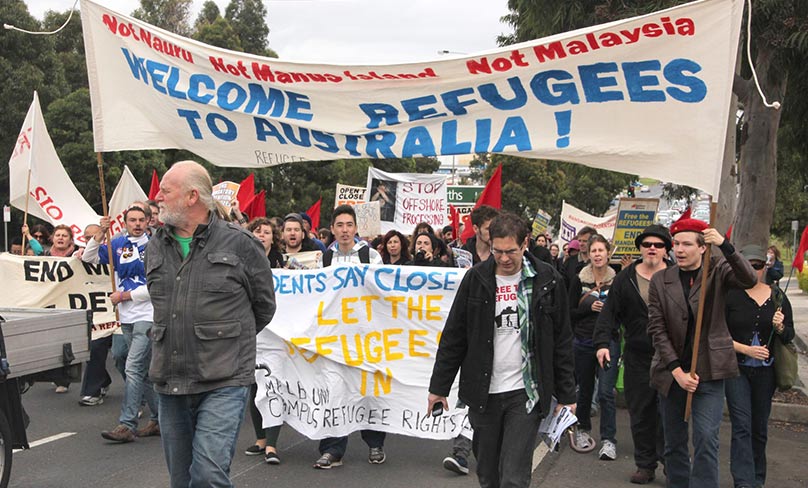
Of course. That’s one thing I really want to emphasise. Yes I am a critic of the CCP but that does not mean I am just a ‘China-basher’. I am also opposed to the Australian Government’s human rights abuses. I am on the record opposing the Australian Government’s terrible treatment towards refugees. So I am fundamentally opposed to all human rights abuses wherever they occur. If the Australian Government is perpetrating terrible human rights abuses especially toward refugees then I will be in the fight against that as well. But when the CCP says “If you’re opposed to China you’re pro-America” – that’s not at all true for me. I will be critical of the American Government and the atrocious way African Americans are treated in that country. For me, it’s fundamentally about fighting for human rights wherever they are violated. It’s not about bashing China for the sake of China. It’s about fighting for human dignity – be it in Western countries, China or the developing world. Human dignity is at the centre of society. Pope Francis through his humanism teaches a very strong concern for human dignity and the environment – which we must leave to future generations – which I admire greatly,
8 You have received multiple and explicit death and other malicious threats from pro CCP activists. Does the life of people like Oscar Romero give you sustenance through such harrowing experiences?
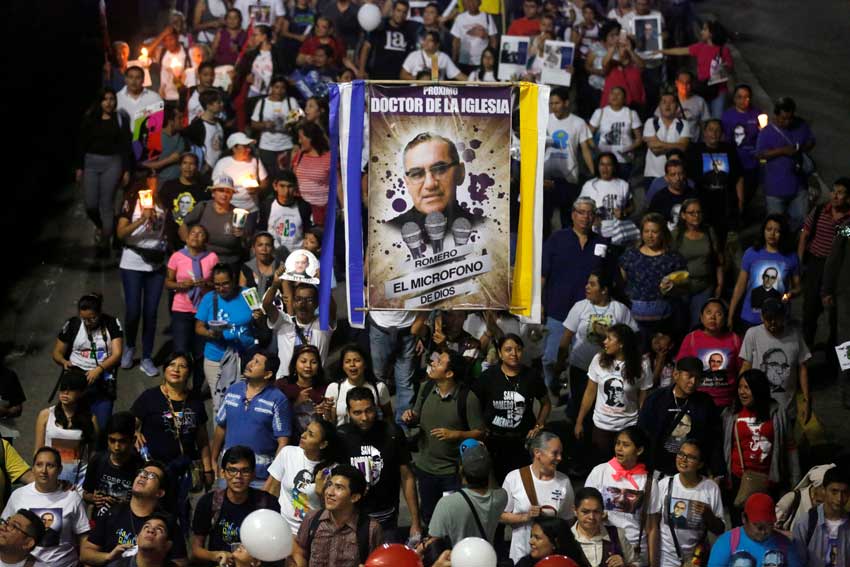
Yes, I look to people like Oscar Romero and those who fought against very powerful forces. Romero died fighting for the poor and vulnerable so that is something that I try and remember when the going gets tough.
The Christian tradition teaches that we find God through loving one another
I know I’m fighting for justice and there’s strength in that, so I’m willing to bear personal sacrifices. The Christian tradition teaches that we find God through loving one another. There’s basically no higher calling than loving your neighbour and loving other people so I think there’s no higher calling for me than trying to fight for other people. That’s why I’d be willing to face risk to myself because I truly believe there is a higher purpose.
9 What advice would you offer the young?
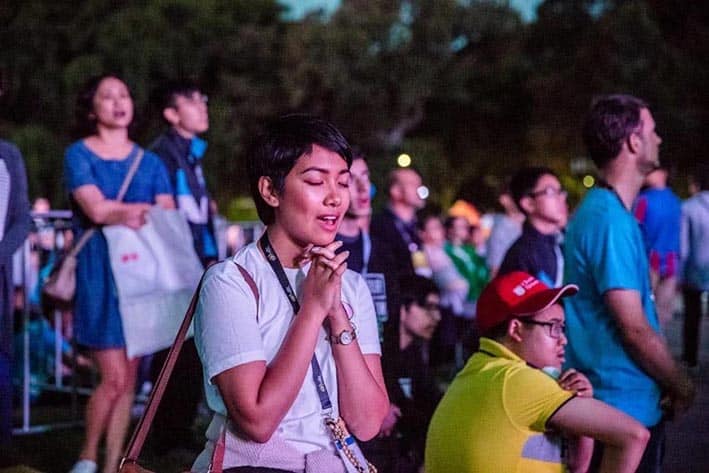
Please always put the vulnerable, the voiceless, the poor and the fragile, at the foremost in your concerns. That’s what I would really encourage people to do. Do everything you can to try your very best to speak out in their favour and demonstrate love and compassion.
I implore people to recognise that and lend their voice to just causes for the voiceless who cannot do so. We want a world where human life is treated with dignity.
We want a world where human life is treated with dignity
Unfortunately we are losing the ability to debate things in society with things like cancel culture. You know, if someone takes the Catholic Church’s position on certain social issues they can be really ostracised. Sure, while I personally disagree with some of the Church’s positions I understand that it’s a matter of faith for those who do and that’s an important thing we need to recognise and uphold.
Drew Pavlou hopes to enter federal politics in the future, with an emphasis on human rights.
Related Stories:
